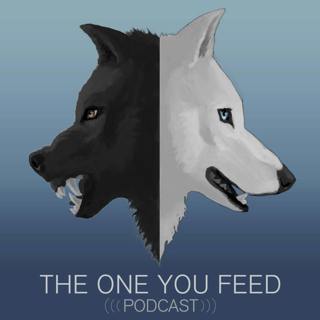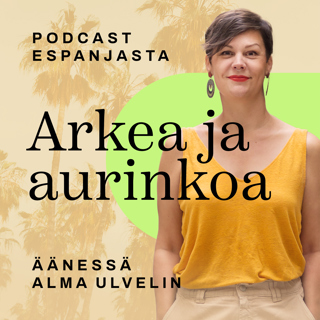
Mini Episode: One Day at a Time
One Day at a Time is a cliche but under the surface there is an enormous amount of wisdom. Some of our most popular interviews that you might also enjoy:Kino MacGregorStrand of OaksMike Scott of the ...
30 Maalis 20156min

Byron Katie- The Work
This week we talk to Byron Katie about questioning our thoughtsByron Kathleen Mitchell, better known as Byron Katie is an American speaker and author who teaches a method of self-inquiry known as "The...
24 Maalis 201541min

Mini Episode- Small Changes
Getting unstuck, small changes add up over time, a little bit of something is better than a lot of nothing and the power of keystone habits. Visit our website for more informationSee omnystudio.com/li...
23 Maalis 20158min

Glennon Doyle Melton
This week we talk to Glennon Doyle Melton about staying open to life In This Interview Glennon and I Discuss...The One You Feed parable.Having to get through the bad stuff to get to the good stuff.Fo...
17 Maalis 20151h 2min

Josh Shipp
Josh Shipp aka “The Teen Whisperer” is a former at-risk foster kid turned teen advocate. His TV series TEEN TROUBLE (A&E / Lifetime) documented his work with teens in crisis. He is the author of “The ...
10 Maalis 201554min

Mini Episode: The Fundamental Attribution Error
We hold ourselves and others to different standards. The Fundamental Attribution Error can wreak havoc in our lives and relationships. Visit our website... Some of our most popular interviews that yo...
7 Maalis 20158min

Maria Popova of Brain Pickings
[powerpress] This week we talk to Maria Popova about Brain Pickings and living a good life. Our guest today is Maria Popova: a writer, blogger, and critic living Brooklyn, NY. She is best known for ...
2 Maalis 20151h 10min

Dr David K Reynolds
This week we talk to Dr. David K Reynolds about Constructive LivingDr. David K Reynolds is the creator of Constructive Living. Constructive Living is a Western approach to mental health education base...
24 Helmi 201545min





















